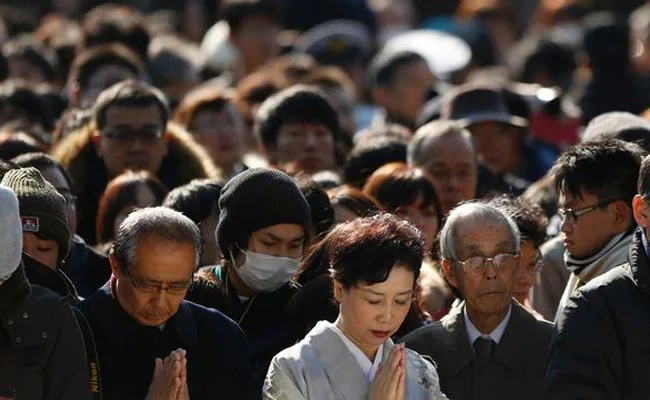Japan experienced its largest ever population drop in 2024, with the number of Japanese nationals falling by 908,574 a 0.75 percent decline to 120.65 million. This marks the 16th consecutive year of population decline, underlining the country’s ongoing demographic crisis. Official data released by the internal affairs ministry on Wednesday paints a bleak picture for a nation grappling with an aging society, low birth rates, and growing economic burdens.
The total population of Japan, including foreign residents, stood at 124.3 million as of January 1, 2025, reflecting a 0.44 percent drop from the previous year. However, the number of foreign residents reached a record high of 3.67 million, or nearly 3 percent of the overall population. Foreign workers are increasingly crucial in filling labour shortages in sectors like manufacturing, hospitality, and retail roles once dominated by younger Japanese workers.
Prime Minister Shigeru Ishiba has described the situation as a “quiet emergency” and has pledged to introduce more family-friendly policies, such as free daycare and flexible working hours, to encourage childbirth. Despite such efforts, the number of babies born in 2024 fell below 700,000 for the first time since records began in 1899. The nation welcomed only 686,061 newborns 41,227 fewer than in 2023.
The aging population is also transforming the social landscape. Nearly 30 percent of Japanese nationals are now aged 65 and over, while the 15–64 age group comprises 60 percent. With fewer working-age citizens and increasing longevity, Japan faces rising healthcare and welfare costs and a shrinking tax base to support them. The recent death of Tomiko Itooka, the world’s oldest person at 116, highlights the nation’s remarkable longevity but also its demographic imbalance.
Rural areas have been hit particularly hard. Government data shows nearly four million homes lie abandoned, many inherited by city dwellers unwilling or unable to maintain them. Meanwhile, the rise of an anti-immigrant opposition party claiming foreigners receive more welfare than citizens adds a political layer to Japan’s demographic dilemma.
Without urgent and effective policy changes, Japan’s population crisis will continue to strain its economic and social systems.

